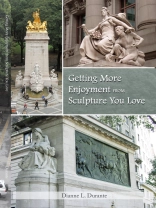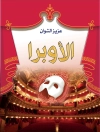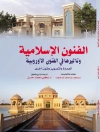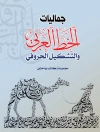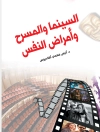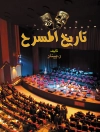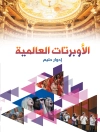A favorite artwork can provide you with enjoyment and inspiration, help you recall important events of the past, and help you project a course into the future. Get even more enjoyment from a work of art you love by approaching it with an active mind.This book sets out a method for getting from the visual to the verbal – from looking at an artwork to thinking and talking about it. With examples that progress from simple to complex, it demonstrates how to study a sculpture in detail to determine its theme, and how to evaluate it in emotional, esthetic, philosophical, and art-historical terms. The goal: to allow you to luxuriate in spending more time with your own favorite sculptures. The bonus: knowing explicitly which aspect of a favorite work appeals to you will help you find new favorites. May this book give you hours of enjoyment as you read it … and decades of enjoyment as you look with new eyes at your current and future favorite works of art!
Jadual kandungan
CHAPTER 1: Introduction
CHAPTER 2: George Washington
CHAPTER 3: The Cid
CHAPTER 4: Nathan Hale
CHAPTER 5: The Puritan
CHAPTER 6: Loeb Fountain
CHAPTER 7: Alice in Wonderland
CHAPTER 8: Joan of Arc
CHAPTER 9: Peter Cooper
CHAPTER 10: Bryant Memorial
CHAPTER 11: Giovanni da Verrazzano
CHAPTER 12: Glory of Commerce
CHAPTER 13: Washington Arch
CHAPTER 14: Firemen’s Memorial
CHAPTER 15: Columbus Monument
CHAPTER 16: Maine Monument
CHAPTER 17: Continents
APPENDIX 1: Christo’s Gates: Art in Individual Minds and Public Places
APPENDIX 2: Politics and Portrait Sculptures
APPENDIX 3: Suggested Readings
APPENDIX 4: Questions for Looking at Sculpture
About the Author
Mengenai Pengarang
At age five, I won my first writing award: a three-foot-long fire truck with an ear-splitting siren. I’ve been addicted to writing ever since. Today I’m an independent researcher, freelance writer, and lecturer. The challenge of figuring out how ideas and facts fit together, and then sharing what I know with others, clearly and concisely – that’s what makes me leap out of bed in the morning.Janson’s *History of Art*, lent to me by a high-school art teacher, was my first clue that art was more than the rock-star posters and garden gnomes that I saw in Catawissa, Pennsylvania, and that history wasn’t just a series of names, dates, and statistics. Soon afterwards I read Ayn Rand’s fiction and nonfiction works, and discovered that art and history – as well as politics, ethics, science, and all fields of human knowledge – are integrated by philosophy. My approach to studying art is based on Rand’s *The Romantic Manifesto*. (See my review of it on Amazon.) As an art historian I’m a passionate amateur, and I write for other passionate amateurs. I love looking at art, and thinking about art, and helping other people have a blast looking at it, too. *Outdoor Monuments of Manhattan: A Historical Guide* (New York University Press, 2007), which includes 54 sculptures, was described by Sam Roberts in the *New York Times* as ‘a perfect walking-tour accompaniment to help New Yorkers and visitors find, identify and better appreciate statues famous and obscure’ (1/28/2007). Every week I issue four art-related recommendations to my supporters, which have been collected in *Starry Solitudes* (poetry) and *Sunny Sundays* (painting, sculpture, architecture, literature, and more).
